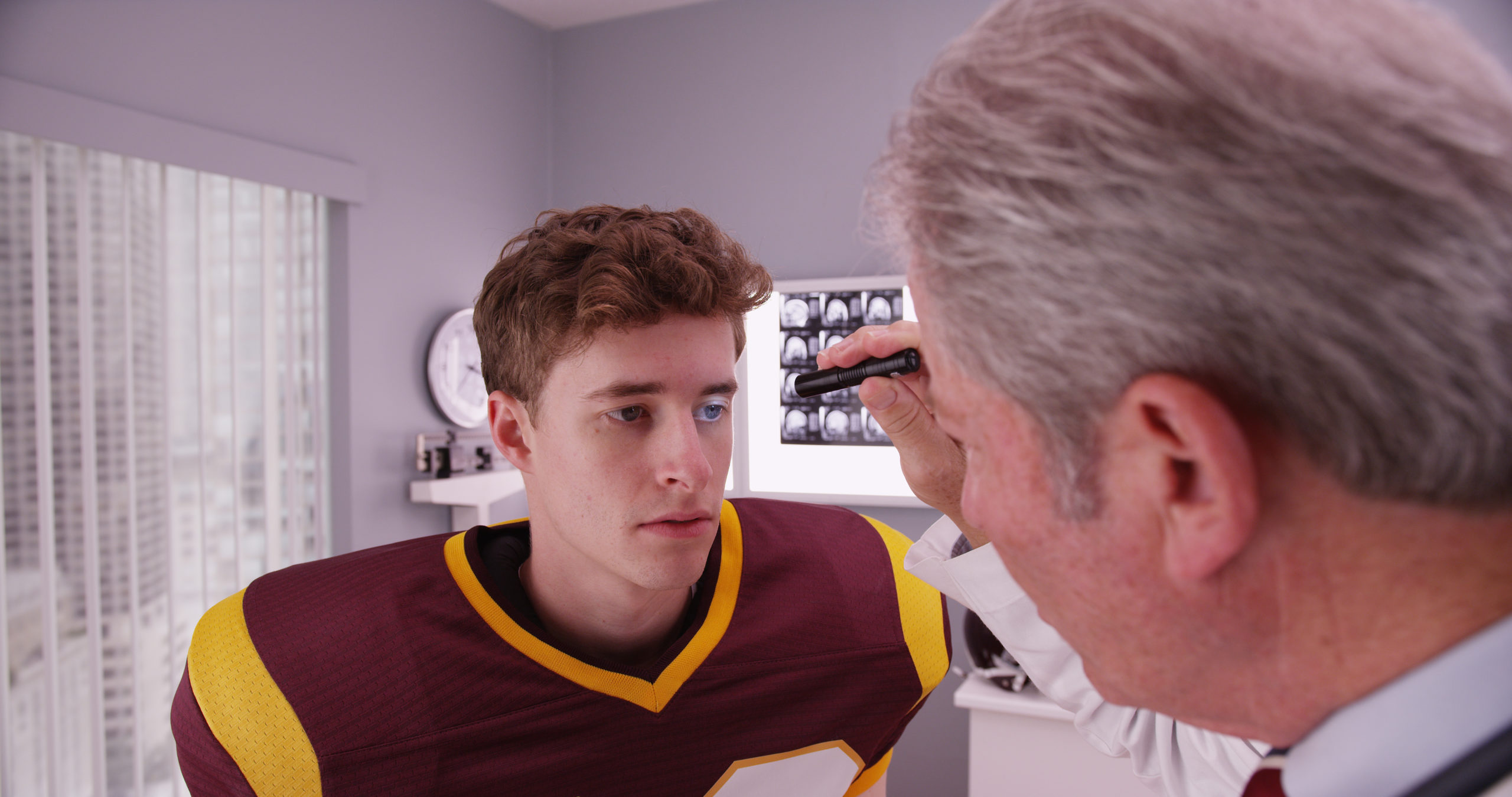Protect Your Kids From A Head Injury in Sports
Roughly 45 million children play an organized sport in the United States. Some kids even play multiple sports throughout the year. While the benefits of playing outdoor sports are numerous, there are also quite a few risks involved. In particular, children who play organized sports are at risk of suffering a head injury or worse, a concussion.
How much are youth athletes at risk? One study found that 12.1 percent of youth athletes will suffer a concussion. The risk was nearly two times greater in 18-year-olds than in 13-year-olds. In addition, girl athletes were 1.5 times more likely to suffer a concussion than boys. Even worse, once your child suffers one concussion, they’re more likely to suffer more. Youth athletes with a prior concussion were 3-5 times more likely to sustain future concussions.
What sports are the riskiest? Studies have shown that the higher impact sports tend to result in more concussions and head injuries. Those include:
- Wrestling
- Martial arts
- Cheerleading
- Football
- Softball
- Track and field
- Hockey
- Soccer
- Skateboarding and BMX racing
- Lacrosse

What Can Parents Do to Prevent A Head Injury?
Parents and coaches must do everything they can to prevent a head injury from occurring. This often starts by making sure children have properly fitted gear. Helmets are extremely important in preventing a concussion as well as a head injury.
The CDC recommends that parents check to make sure their child’s helmet fits appropriately and is certified for use. In addition, parents must insist that children wear their helmets every time they play. Helmet use reduces the risk of suffering serious and life-changing head injuries.
The CDC also has handy helmet fact sheets for every type of helmet, from catcher’s helmets to lacrosse helmets. Each of these fact sheets gives parents tips on how to ensure the proper fit and how to check helmets periodically for damage.
A football helmet, for example, should be serviced regularly by a licensed NAERA2 member. In addition, the CDC recommends that individuals replace their helmets every 10 years or sooner, depending on wear and tear.
Recognizing a Concussion
One of the best ways to prevent serious and long-lasting injury is to recognize the early signs of a concussion. Early detection leads to early intervention and treatment. Parents and coaches should observe their children for the signs of a concussion after any bump or blow to the head. These signs include:
- Dazed or stunned
- Confusion
- Forgetting sports plays
- Moving clumsily
- Answering questions slowly
- Loss of consciousness
- Behavior changes
- Sensitivity to noise or light
- Balance problems or dizziness
- Headache or pressure in the head
- Nausea or vomiting
If you think your child suffered a concussion, parents should take the following steps:
- Remove the child from play
- Seek medical attention
- Follow treatment plan
- Keep child out of sports until the brain has healed
- Notify coaching staff
A CT Scan Is Useful in Diagnosing A Head Injury
When you seek medical treatment, your child’s doctor may order a CT scan to check the brain for bleeding. This type of scan provides a cross-section image of the brain and can help doctors identify areas where the brain has suffered injury or compromise. These types of scans are ideal when diagnosing brain injuries. By looking at a CT scan, your doctor can determine the best course of treatment to help your child heal fully after a concussion.
Schedule Your CT Scan Today
At ImageCare Radiology, we offer a variety of diagnostic imaging services, including CT scans, MRIs, and other neurological imaging. If your child suffers a serious blow to the head, your doctor may decide to perform a CT scan to rule out more serious complications. In some cases, multiple scans may need to be ordered to assess the injury. Our radiology and imaging centers believe in providing exceptional imaging services whenever you need us. If your doctor has requested imaging services for you, contact us today at 973-871-3333 to schedule an appointment or complete our convenient online appointment request form.